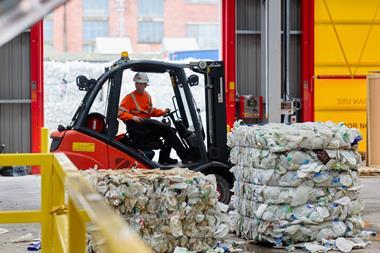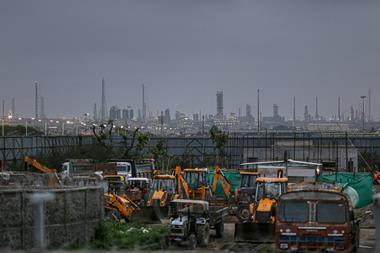There are no sustainability ‘silver bullets’ and science will have to work within social and economic frameworks to change the world, a new report claims
Efforts to move the world to a sustainable global economy will need to look beyond purely technological fixes to put social and economic solutions centre stage. This is one of the central conclusions of a major new report by the UK’s Royal Society that brings together a wide range of evidence on humanity’s effects on the planet and how these might be mitigated.
John Sulston, 2002 Nobel laureate in physiology or medicine, who chaired the People and the planet report, tells Chemistry World that we are inching towards the edge of the ‘comfort zone’ of how many people the planet can sustain. ‘We tend to find in each case - take for example the green revolution - we solve the problem to a certain extent but we do it at a cost,’ he says. ‘In this case the cost of nitrogen fertilisers and the run-off pollution.’ Sulston says that we need to come at the problem from ‘another angle’. A major part of this will be the roll out of voluntary family planning schemes to restrain population growth.
The report notes that, while science and technology will play its part in mitigating problems and ‘improving the human estate’, more attention needs to be paid to how these technologies are deployed. As an example, first generation biofuels are mentioned as offering little in the way of cuts to greenhouse gases over fossil fuels and have environmental impacts of their own, such as habitat destruction. As a result, weighing up the pros and cons of any answer to the pressing sustainability problems the world faces is at least as important as the solutions the science and technology community will supply.
One of the other key planks of the report’s recommendations is to lift 1.3 billion of the world’s poorest people - those living on less than $1.25 (£0.77) per day - out of poverty. At the same time material consumption in the world’s richest societies needs to be cut dramatically. This, coupled to a truly global drive to extend family planning to everyone who wants it, would help put the planet on the path to a sustainable economy, the report’s authors claim.
Author Eliya Zulu, executive director of the African Institute for Development Policy, says that in Africa alone the continent’s population is set to expand by 2 billion by the middle of this century. Currently, the majority of African countries have fertility rates in excess of 4.2, while the mean fertility rate for developed countries is 1.71. To fund access to family planning for countries with the highest fertility rates would cost up to $7.7 billion each year. But the authors point out that compared with the money spent on aid or treating disease this isn’t impossible to achieve and this sum would be rapidly repaid thanks to falling health costs and improved educational achievement. And it really would be possible to achieve change quickly. Sarah Harper, professor of gerontology at Oxford University, UK, and another report author, notes that Thailand’s fertility rate fell to a level close to the UK within a generation by expanding access to family planning.
Attempting to stabilise and then cut the consumption of resources of the richer nations will be difficult, but the report recommends dramatic improvements in the use of raw materials across all sectors. This means everything from tackling food waste to improving energy efficiency and decoupling economic activity from environmental degradation. However, the report is short on suggestions for achieving these ambitious targets. Defending the report, Sulston says that there is no ‘silver bullet’ to address these problems but if nations can keep getting around the table they can flesh out action to address the points the report raises.
Both cutting material consumption in the developed world and a push to reduce the world’s population are, to say the least, contentious in many quarters. But Zulu says the evidence shows that the majority of women in Africa are keen to have fewer children. As for tackling resource consumption in the developed world, Sulston says: ‘Always, always, always separate material consumption from economic consumption.’ He adds that with energy saving technology, combined with renewable, low carbon energy sources, people can have a quality of life just as high as they are used to but with a much smaller environmental footprint.












No comments yet